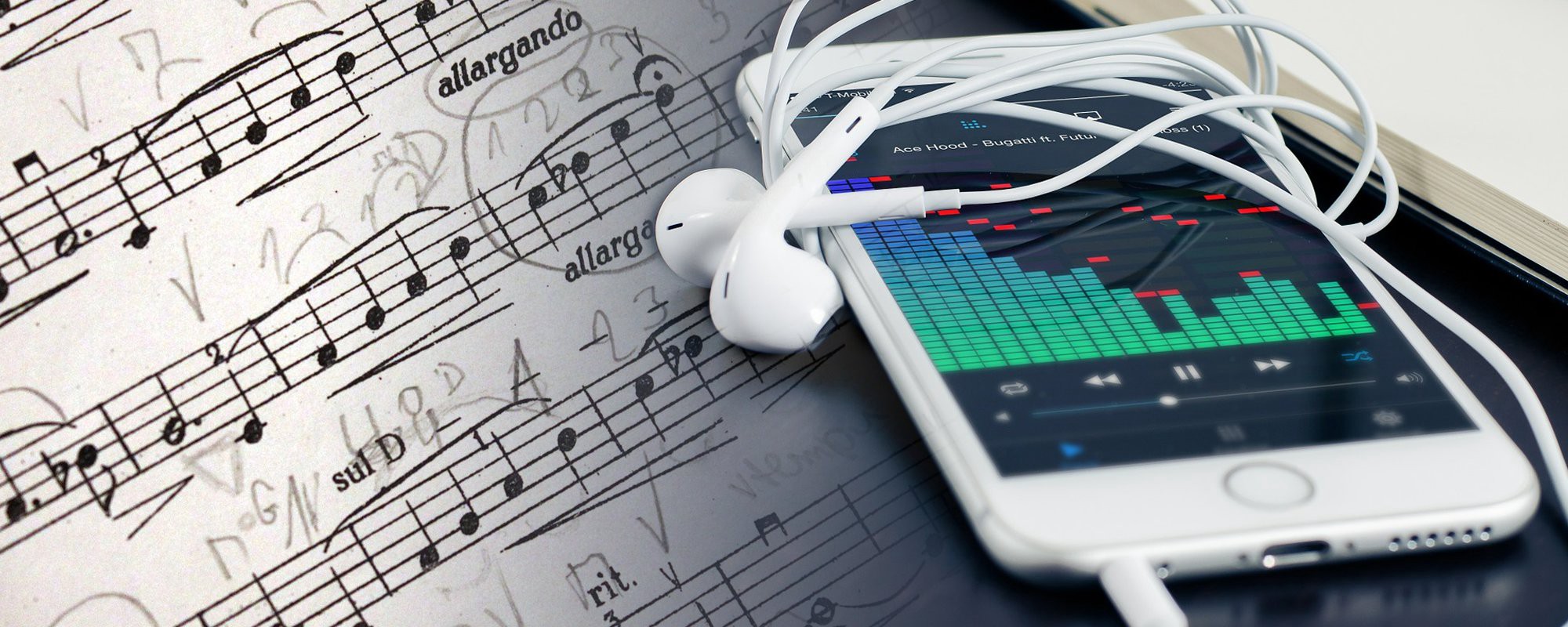

Over the last century, the way we listen to music has undergone countless revolutions. From concert halls and sheet music, to radio and LPs, to television and CDs, to the internet and MP3s, to smartphones and streaming, the only constant has been change.
Or has it? Pop songs have remained more or less the same length and format throughout that time, and a time traveler from the 1800s would easily recognize the concert-going experience of today. An album is still an album, and the major scale is still the major scale (except outside of the Western world, of course).
In short, there are many different perspectives on the future of music. To help you come to grips with the many viewpoints on how listening will change over the coming decades, we’ve pulled together some of the best writing on the subject.

“Of all noises, I think music is the least disagreeable.”
–Samuel Johnson, attributed in The Tickler magazine, 1818

The Hit Single
When talking about the future of music, it’s impossible to avoid arguments that the sky is continuously falling as a result of piracy, streaming, or the latest internet technology. In this excellent piece for The New York Times, How We Get To Next‘s very own Steven Johnson digs up some real data and finds that things aren’t anywhere near as bad as we’ve been led to believe. “Somehow,” he writes, “the turbulence of the last 15 years seems to have created an economy in which more people than ever are writing and performing songs for a living.”
For balance, here’s the Future of Music Coalition, which is quoted in the piece, taking issue with some of the details. “If you want to know how musicians are faring,” the collective writes, “you have to ask musicians. You’ll get different answers from different musicians, and they’ll all be correct in terms of their own experiences. But your overall understanding will better reflect the complexity of the landscape.”

Album Tracks
Streaming, playlists, and other technologies have revolutionized modern music listening, as have new approaches to celebrity and fame:
- “Up Next: How Playlists Are Curating the Future of Music“
- “Tastemaker: How Spotify’s Discover Weekly Cracked Human Curation at Internet Scale“
- “You Belong With Me“
- “Open the Music Industry’s Black Box“
- “Why Do All Records Sound the Same?“

Deep Cuts
Here’s the back catalogue–a collection of reads on specific topics related to the future of music technology, art, and culture from a variety of viewpoints:
- “Mixtapes: The Future of Curation?“
- “Holding Out for a Guitar Hero: The Uncertain Future of the Six-String“
- “Copyright Erosion: How DMCA Misuse Became A Multimillion Dollar Shakedown“
- “How Lady Gaga’s Manager Reinvented the Celebrity Game With Social Media“
- “Ecstasy, Fake LSD, and Sort-Of Magic Mushrooms: The Future of Dance Music’s Drugs“
- “Steve Albini on the Surprisingly Sturdy State of the Music industry–In Full“
- “There’s No Such Thing As “First” Anymore“
- “Banned: A Rough Guide“
- “When the People Cheer: How Hip-Hop Failed Black America“
- “2014: The Year Music Actually Did Something About Its Tech Skepticism“
- “Music to Hate With“
- “The World Needs Female Rock Critics“

Liner Notes
Alright, perhaps you prefer a more physical experience–like pulling a record out of its sleeve and placing it on a turntable. Here’s a collection of physical books addressing different aspects of music’s future and recent past:
- “The Future of Music: Manifesto for the Digital Music Revolution“
- “Last Night a DJ Saved My Life: The History of the Disc Jockey“
- “Yeah Yeah Yeah: The Story of Modern Pop“
- “The Manual: How to Have a Number 1 the Easy Way“
- “How Music Works“
- “The Recording Angel“


How We Get To Next was a magazine that explored the future of science, technology, and culture from 2014 to 2019. This article is part of our Fast Forward section, which examines the relationship between music and innovation. Click the logo to read more.
